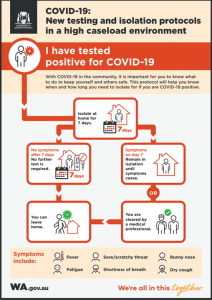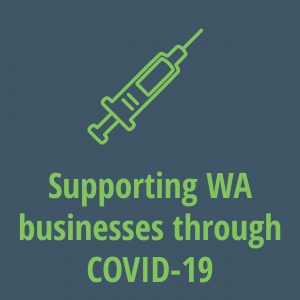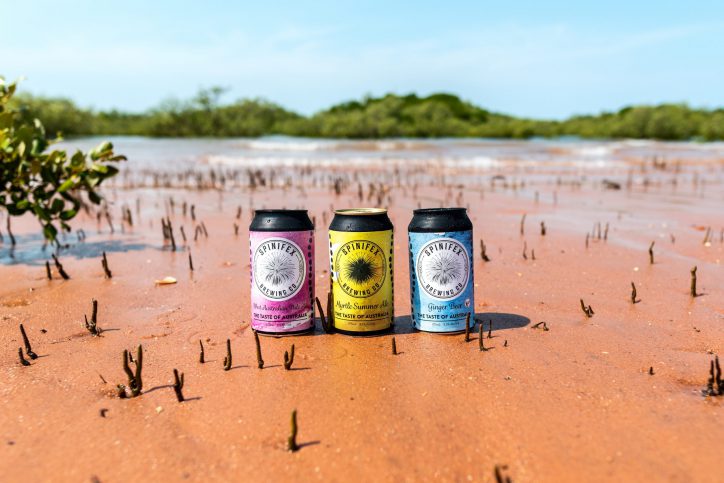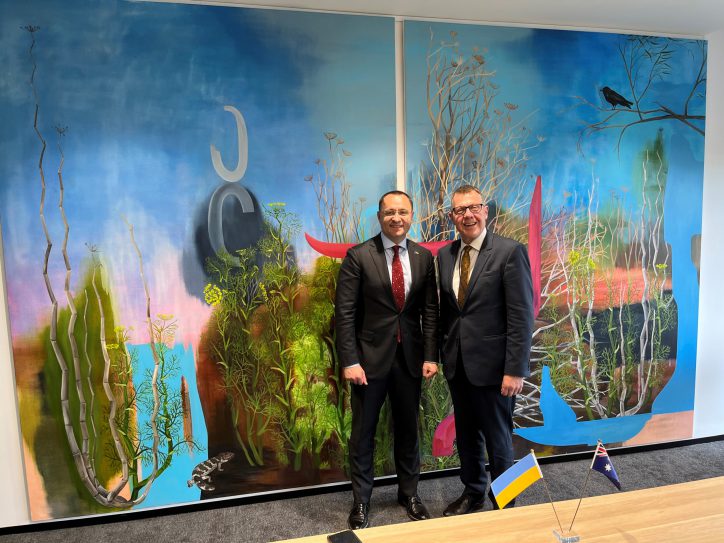The State Government has today declared that WA is under a ‘high COVID caseload’ setting, triggering new testing and isolation requirements.
Premier Mark McGowan said from Tuesday, February 8, the following high caseload settings will begin:
- New close contact definition;
- New testing and isolation guidelines;
- Specific school and childcare centre close contact protocols; and
- Mandatory positive Rapid Antigen Test registration.
For more on the rules see here.
In addition, starting from Wednesday, February 9, the following will also be implemented:
- Quarantine for approved international and interstate travellers reduced to seven days;
- Travellers must then wear a mask in indoor and outdoor settings for the seven days after they end their self-quarantine;
- Vaccinated direct international travellers permitted to self-quarantine at a suitable premise, if eligible, with the arrivals cap doubled to 530 travellers per week;
- Mandatory use of G2G NOW will still be required by all arrivals in self-quarantine;
- Unvaccinated international arrivals required to complete 14 days in hotel quarantine.
The Government said Rapid Antigen Tests can now be used as a diagnostic tool from February 8, with all positive RAT results required to be logged online via the HealthyWA website.
However, the Premier said PCR testing clinics continued to have capacity, and people should still seek out a PCR test where possible.
Under the hard border settings, approved travellers will be required to take a PCR or RAT on Day 1, and then return a negative RAT on Day 7 to end their self-quarantine period.
Any household member in the self-quarantine premises will also be required to return a negative RAT on Day 7. Any household member will be classified as a close contact, if the approved traveller tests positive during self-quarantine.
Any travellers, positive cases or asymptomatic close contacts currently in self-quarantine under the previous settings, are able to leave quarantine once they have completed seven days and have returned a negative RAT test. If symptomatic, people need to continue in isolation until symptoms resolve.
The changes will mean an updated approach to managing the presence of COVID within your business.
For positive cases, staff members will be able to draw down on their sick and annual leave while isolating. For those without leave, the Government has offered a COVID isolation leave payment.
CCIWA has continuously assisted businesses to prepare for COVID being present in WA, and we urge our members to access the resources and advice we offer via CCIWA’s COVID-19 Support Centre.
For general advice on your individual situation call CCIWA’s Employee Relations Advice Centre on (08) 9365 7660 or via [email protected].
For legal advice specific to your situation, contact our team of Workplace Relations lawyers on (08) 9365 7746 or via [email protected].








